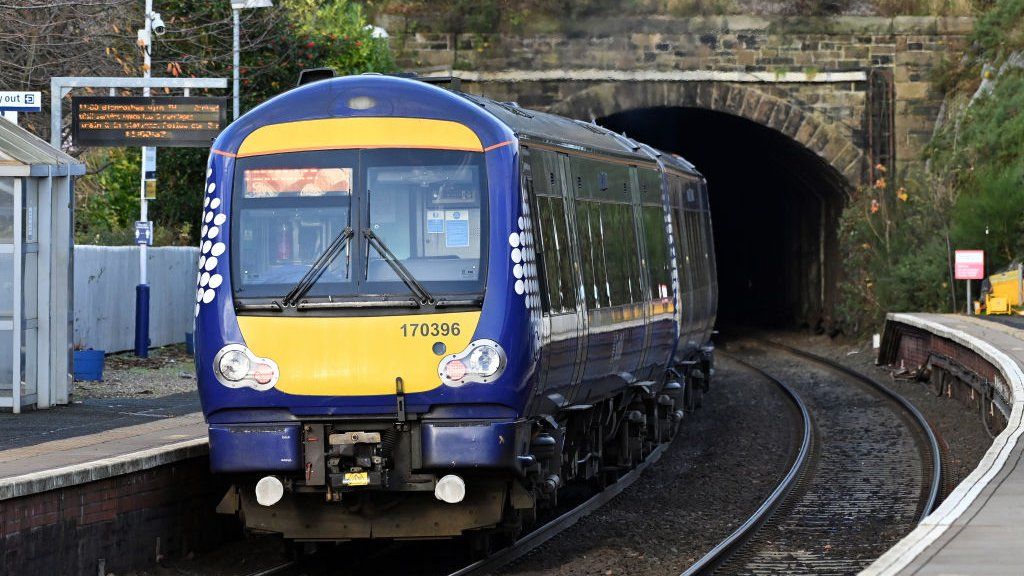Covid in Scotland: Train services cut as passenger numbers plunge
- Published
- comments

The number of trains running in Scotland will be reduced to 65% of pre-pandemic levels from next week.
It comes as passenger numbers fell by 90% during the Covid pandemic.
ScotRail will cut services from Monday 1 February. It is the second recent change from the operator, after the number of carriages was reduced earlier this month.
The boss of Scotland's Railways Alex Hynes said such difficult decisions had to be made to save taxpayer money.
He told BBC Radio Scotland's Good Morning Scotland programme that the rail network had gone from 300,000 passengers a day and "plunged" to 30,000.
Mr Hynes explained that from March last year timetables "had been tweaked" at regular intervals to make sure an efficient and reliable service was available for those "who needed to travel".
The operator said it would continue to deliver 72% of seats on the network but had to make "sensible decisions".
ScotRail said it was committed to providing a reliable service for key workers and to support Scotland's vaccination rollout.
It has consulted with NHS boards to ensure key worker shift patterns are covered as far as possible.
The operator's own staffing levels have been affected, with workers having to shield or self-isolate due to increases in positive Covid tests.
ScotRail said all changes would be reviewed, particularly if there was any change to passenger numbers. It said this would ensure that physical distancing guidelines could be observed.
It added that there would be "minimal change" for those currently using services as changes were being match with "current demand".
'Timetables must meet needs'
Mr Hynes said: "Clearly with a reduction in demand we have had to make difficult decisions to save the taxpayer money, but every bit of the network continues to get a good service between seven in the morning and seven at night."
He added that no one knows how rail travel is going to emerge from the pandemic. Mr Hynes believed there were questions around the future of commuting but he expected leisure to "bounce back more quickly" once restrictions are lifted.
Currently, much of Scotland is in level four lockdown which requires people to stay at home and only make essential journeys.
Robert Samson, stakeholder manager at rail watchdog Transport Focus, said: "Train timetables must still meet the needs of those who have to travel.
"Many key workers rely on the first and last services of the day so it's important that these are maintained.
"Providing enough capacity for those who are travelling to properly social distance remains vital."
Related Topics
- Published23 November 2020
- Published16 November 2020